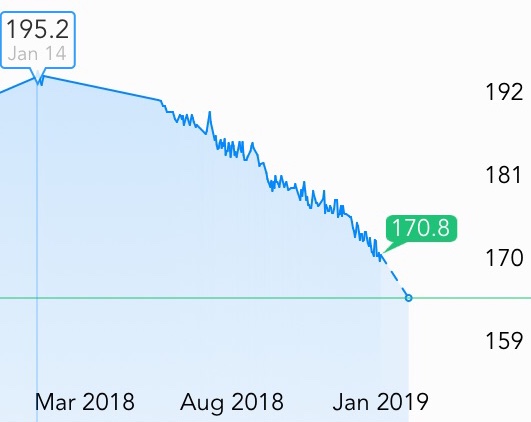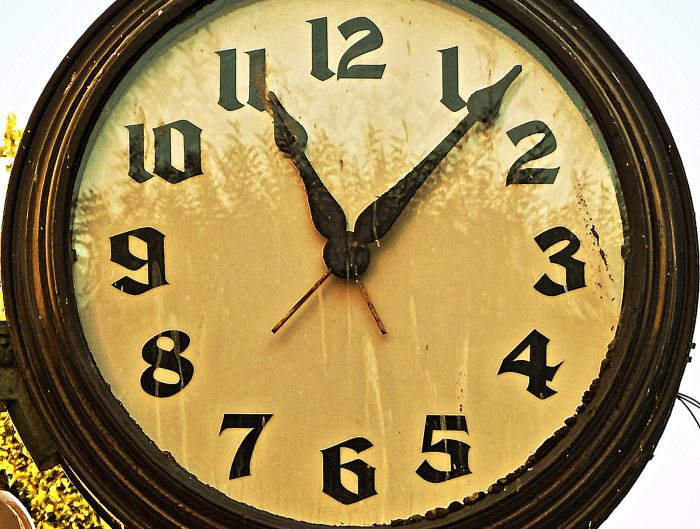Ups and Downs
How’s this for a stereotypical story? Up until my early 20s I never thought about my weight and, despite eating whatever I wanted, weighed about 150 pounds–which, at, 5 foot 11, meant that I was quite twiggy (as you can see in the photo below).
 Then, as I started moving toward a quarter-century of life and beyond something changed; maybe it was my metabolism, maybe it was my eating and exercise habits, but whatever the cause one day I stepped on a scale and weighed 195 pounds (as you can see in the other photo). Looking in the mirror, I could hardly believe it: seemingly overnight I’d gone from being a lean athlete to an overweight adult.
Then, as I started moving toward a quarter-century of life and beyond something changed; maybe it was my metabolism, maybe it was my eating and exercise habits, but whatever the cause one day I stepped on a scale and weighed 195 pounds (as you can see in the other photo). Looking in the mirror, I could hardly believe it: seemingly overnight I’d gone from being a lean athlete to an overweight adult.
This was in 2007. What inspired me to even take the step of getting on a scale was that a few weeks prior I had entered my first bicycle race and after one mile got dropped (passed) by every other rider, including a guy in jeans. This did not jibe with the image I had of myself as an elite athlete (in my teens I trained to be a pro tennis player) and, to be frank, scared me. What if I could never slim down? It was unacceptable to me.
So I immediately did two things. First, I read that to lose a pound a week one must have a caloric deficit of 500 calories a day. And second, to achieve that, I cut way back on my eating while also increasing my exercise significantly. Six months later I was back down to 160 and felt as fit as I’d been in many, many years.
Unfortunately, life soon intervened. In 2009 I started Capital Good Fund, got my master’s degree at Brown, and became a full-time nonprofit executive. As my work days grew longer my eating and exercise habts deteriorated, and slowly my weight ticked back up–from 160 to 170 and then 180. Now I was even more of a stereotypical adult: one who would lose wei ght only to put it back on!
ght only to put it back on!
Over the past few years I’ve maintained a “streak” of riding my bike at least an hour a day, and I’ve now reached 600 consecutive days. Unfortunately, during that same timeframe the stress from work has gotten worse, and the best I can say is that the streak has prevented me from gaining a lot of pounds as opposed to enabling me to drop them. That said, I went from about 170 last November, when I was benefitting from the ability to do a lot of long bike rides during the summer and fall, to 178 last week. In short, it was time to recommit myself to the issue.
Starting off, I have an advantage, which is that I use a Jawbone UP fitness band and am religious about noting every single thing I eat; every energy bar, every drop of creamer in my coffee, every bagel and pistachio. This means that I can handle the easy part: setting a calorie budget and ensuring that I meet it. For me, that budget ranges from 2,500 on a day where I just do an easy, hourlong ride, to over 4,000 when I do a 2+ hour ride.
It Takes Time
The hardest part for me is not the discipline of watching what I eat so much as the frustration that it’s going to take so long just to get back to where I was last Fall, and in fact I imagine this is what deters a lot of people–if you want to lose one pound per week, which is a healthy approach, then it’s going to take time as well as discipline to get to where you want to be.
So last week I set a goal of 160 pounds–my ideal racing weight–by late (1 pound per week for roughly 17 weeks, with room for some bad weeks). Within a few days I’d already lost two pounds, probably because of water weight or simply “low-hanging fruit.” Unsurprisingly, however, is that while the plan is easy on paper (for all the magic pills and other diet plans that are pitched on TV, at the end of the day the only approach that works is cutting down on caloric intake and / or increasing caloric burn), the execution is difficult. For starters, I find that I’m mildly hungry throughout the day, and the more stressful my work day, the harder it is for me to avoid snacks, especially sugary ones: the boost of energy is helpful. And more than that, I have to constantly be vigilant, for it is incredibly easy to consume calories: if you need a deficit of 500 calories, one extra Clif Bar (240 calories), one Coke (~ 200 calories), and one coffee with cream (~100) will wipe that out in one fell swoop.
As a result, on top of forcing myself to focus on calling potential investors, meeting with staff, writing grant reports, and all the other things I do in a typical day–things that require mental focus–I am also forced to focus on what I do, and do not, eat. Research has shown that will power is like a muscle, which makes it a double-edged sword: while using it makes it stronger, it also makes it tired. Put another way, it’s a bit like going to the gym twice in a day–once to lift weights and once to do cardio.
Another challenge is that weight fluctuates, meaning that when I do my morning “weigh-in” the number is can be deceptive; the true measure is the rolling average over the past week. Moreover, it is inevitable that there be setbacks. For instance, when I have to travel I find it almost impossible to stick to a budget. At home and work I have my routine of what I eat and when, but on the road all that goes out the window.
Advice For Losing Weight
My conclusion, however, is not the obvious one that losing weight is hard (it is, and we all know that), but rather there there are simple strategies we can put in place. Below are some of my suggestions. I’ll keep updating you over the next weeks and months to see if I follow them and if they work!
- Commit to it. I find it helpful to have a starting point. Pick a day, weigh yourself first thing in the morning (before eating), note your weight, set up a goal and a timeline for hitting it (again, 1 pound per week is a good goal to have), and establish a calorie budget. There are all sorts of online tools for creating that budget. Check out Calorie King, for instance.
- Tell others. In her book Join The Club: How Peer Pressure Can Transform the World, Tina Rosenberg provides numerous examples of how others tend to do a better job of holding us accountable than we do of holding ourselves accountable. Another book that makes this argument is The Power of Habit: Why We Do What We Do in Life and Business by Charles Duhigg. Nor should this be a surprise. There’s a reason why personal trainers, AA, and weight watchers are proven to work. But it turns out that something as simple as announcing your goal on Facebook can also be quite effective.
- Be flexible. Some people recommend giving yourself a day where, to a reasonable extent, you forget about your budget. That way, you can look forward toward your “day off” on those days where you’re struggling, much as on Wednesday you long for Friday or Saturday. What’s more, build into your plan an expectation of having bad weeks; give yourself 20 weeks to lose 17 pounds, assuming that at least three of the weeks won’t go according to plan.
- Get in the right mindset. It’s not going to be easy, but neither is it impossible. One way I think about it is that if I’m doing this right, I should feel slightly hungry when I go to bed. While that is not a pleasant feeling, I console myself by saying that I’m going to really enjoy my breakfast!
- Take advantage of low-hanging fruit. I used to drink a chocolate protein beverage three times per day. It’s really, really tasty, but also has 250 calories per serving. I simply stopped buying it and, in so doing, cut out 750 calories. Maybe you have a breadstick with your sandwich at lunch; by cutting out the breadstick, you save 100 calories. Look through your meals and find easy ways to save. Also, as a general rule, you should avoid drinking calories to the extent possible.
- Figure out what makes you feel full. For me, eating a whole cucumber and apple is a 90-calorie snack that fills me up. Caffeine is a known appetite suppressant, and drinking water before a meal is another good strategy
- Have smaller meals and eat more often. This will prevent you from getting over-hungry and then over-eating.
- Take a moment. Before sitting down to eat, take a moment to plan. I know that I often come home starving and, before long, have eaten 1,000 calories. But when I decide what I’m going to eat before I eat, I find it easier to savor each item and therefore avoid eating too much.
- Reward yourself. Maybe you have a cookie every time you lose a pound. Maybe you really need a coffee with cream in the middle of the day. No problem, just fit it into your budget. If your plan is not something you can carry out, then you are setting yourself up for failure.
- Relax. It can feel frustrating and tiring and deflating to be on a diet. The good news it that you are never doomed to your current weight. So please relax, don’t take it too seriously, and don’t go to extremes: it’s unhealthy to lose too much weight too fast, and you never want to venture into the abyss of an eating disorder. If you find that your approach to this is becoming obsessive or unsafe, please talk to your doctor or a trusted friend and listen to their advice.
Okay, those are my thoughts on weight loss. Now it’s time for me to follow my own advice. I’ll be sure you keep you up-to-date!



Comment
If you want to lose weight never deprived yourself of eating but just eat in moderation, also make sure you’re eating only the healthy foods,drink plenty of water (lemon or other fruit infused water), you can also bulletproof your coffee in the morning it will satisfy your hunger, do not skip a meal and have enough sleep ..